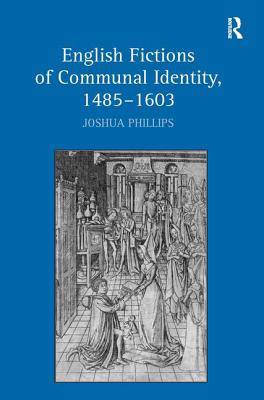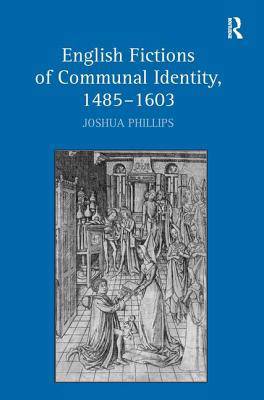
- Afhalen na 1 uur in een winkel met voorraad
- Gratis thuislevering in België vanaf € 30
- Ruim aanbod met 7 miljoen producten
- Afhalen na 1 uur in een winkel met voorraad
- Gratis thuislevering in België vanaf € 30
- Ruim aanbod met 7 miljoen producten
Zoeken
€ 290,45
+ 580 punten
Omschrijving
Challenging a long-standing trend that sees the Renaissance as the end of communal identity and constitutive group affiliation, author Joshua Phillips explores the perseverance of such affiliation throughout Tudor culture. Focusing on prose fiction from Malory's Morte Darthur through the works of Sir Philip Sidney and Thomas Nashe, this study explores the concept of collective agency and the extensive impact it had on English Renaissance culture. In contrast to studies devoted to the myth of early modern individuation, English Fictions of Communal Identity, 1485-1603 pays special attention to primary communities-monastic orders, printing house concerns, literary circles, and neighborhoods-that continued to generate a collective sense of identity. Ultimately, Phillips offers a new way of theorizing the relation between collaboration and identity. In terms of literary history, this study elucidates a significant aspect of novelistic discourse, even as it accounts for the institutional disregard of often brilliant works of early modern fiction.
Specificaties
Betrokkenen
- Auteur(s):
- Uitgeverij:
Inhoud
- Aantal bladzijden:
- 268
- Taal:
- Engels
Eigenschappen
- Productcode (EAN):
- 9780754665984
- Verschijningsdatum:
- 28/01/2010
- Uitvoering:
- Hardcover
- Formaat:
- Genaaid
- Afmetingen:
- 156 mm x 234 mm
- Gewicht:
- 553 g

Alleen bij Standaard Boekhandel
+ 580 punten op je klantenkaart van Standaard Boekhandel
Beoordelingen
We publiceren alleen reviews die voldoen aan de voorwaarden voor reviews. Bekijk onze voorwaarden voor reviews.











